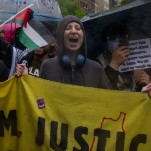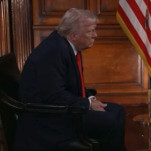Nate Parker Cuts Off Interview After Being Asked About Rape
Latest
The first public screening of Nate Parker’s The Birth of a Nation was held Saturday night at the Toronto Film Festival, and though the movie has been incredibly well-received by its audiences, Parker is only just beginning what promises to be a tough journey through the press junkets.
The film was itself was given an “extended standing ovation,” CBC interviewer Eli Glasner said as he introduced a segment preceding his interview with Parker, adding that there was no red carpet ahead of the screening, nor were there any protesters.
-

-

-

-

-

-

-

-

-

-

-

-

-

-

-

-

-

-

-

-

-

-

-

-

-

-

-

-

-

-

-

-

-

-

-

-

-

-

-

-







































